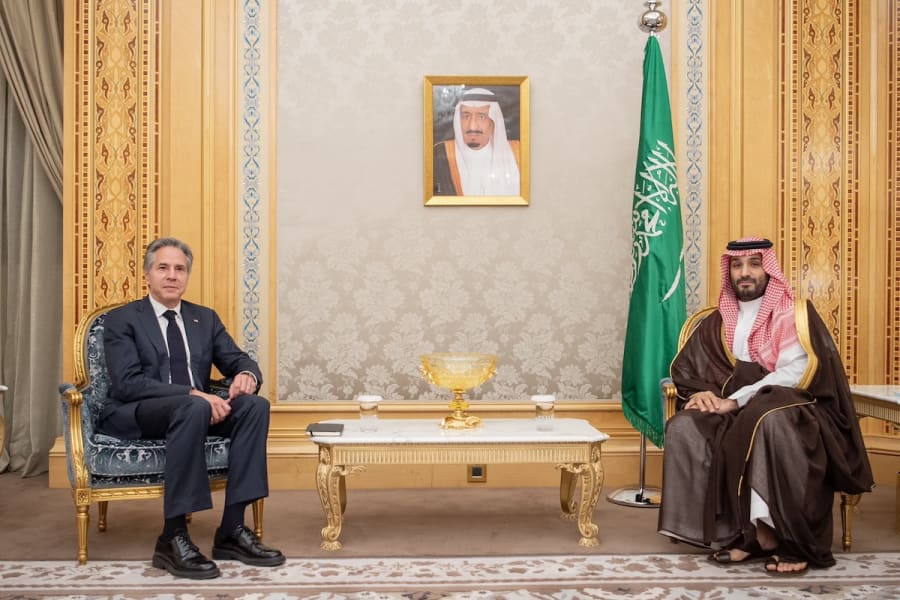US and Saudi Arabia seek to implement security pact ahead of US election in November

The United States and the Kingdom of Saudi Arabia are reportedly in the final stage of securing an American-Saudi defense pact ahead of the upcoming U.S. election in November. If implemented, the U.S. would be required to defend Saudi Arabia if it were under attack and would become the first Arab state to sign such a strategic alliance with the United States.
In exchange for an American military defense umbrella and access to advanced U.S. military technology, Saudi Arabia would formally commit to block attempts by Russia or China to establish any military bases in territory.
Furthermore, if necessary, the U.S. military would be able to use Saudi territory and airspace to defend its security interests.
The Biden administration has attempted to link a potential Saudi-Israeli normalized deal to the Saudi-American defense pact. In recent years, Saudi Arabia and Israel have developed closer covert ties due to the shared threat from the Iranian regime. While Saudi Arabia did not formally join the historic Arab-Israeli Abraham Accords in 2020, the Saudis nevertheless played an important role behind the scenes.
In September 2023, Saudi Crown Prince Mohammed bin Salman (MBS) indicated that his country was prepared to normalize relations with Israel if a two-state solution.
Since Hamas’ invasion and massacres in southern Israel on Oct. 7, the Saudi leadership has become increasingly critical of Israel’s counterterrorism operations against the Palestinian terror group in Gaza and informed Washington that they would not enter into an Israel-Saudi normalization agreement.
However, in January, the Saudi ambassador to the United Kingdom, Khalid bin Bandar Al Saud, told BBC News that his country was still interested in normalizing its ties with Israel.
“Absolutely, there’s interest, there’s been interest since 1982 and before,” Al Saud stated.
“We’ve been at this for a long time, and willing to accept Israel for a long time; it’s a reality that we have to live with. But we can’t live with Israel without a Palestinian state,” added the Saudi ambassador in London.
Joshua Teitelbaum, a professor of modern Middle Eastern history at Bar-Ilan University and visiting fellow at Stanford University’s Hoover Institution, believes that Biden wants to pressure Israeli Prime Minister Benjamin Netanyahu to agree to a two-state solution to secure a foreign policy achievement ahead of the U.S. election in November.
“The U.S. president is deciding to apply pressure on Netanyahu,” Teitelbaum noted, adding that the Saudi Kingdom needs more time before agreeing to normalize ties with Israel in any event.
“Saudi Arabia is not fully interested in normalization, but in order to get a defense treaty, it may accept it. But it is very unlikely that this process will happen soon since interim steps must be taken,” Teitelbaum noted. “For example, Saudi Arabia must educate its population about Jewish history and acceptance of Israel, as the UAE did. Furthermore, it has to deal with strong domestic support for the Palestinian cause.”
Marshall J. Breger, professor at Catholic University of America’s Columbus School of Law and former Heritage Foundation senior fellow, believes the Saudi-Israeli normalization has several hurdles to overcome.
“Biden’s administration is trying to push Israel to be on board, but it is not an easy task for Netanyahu,” Breger told Media Line.
“He has always opposed a Palestinian state and has to deal with a lot of pressure from ultra-right-wing nationalists,” he added, referring to Netanyahu’s far-right coalition partners.
